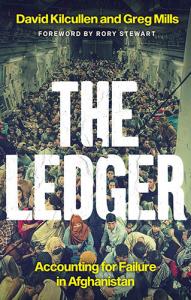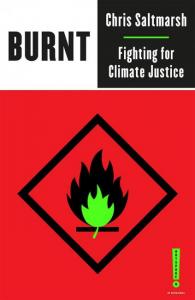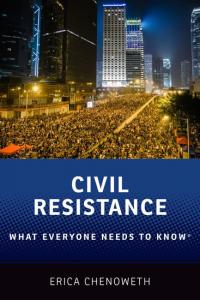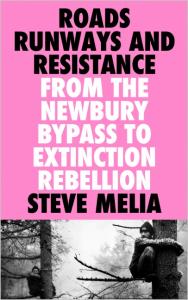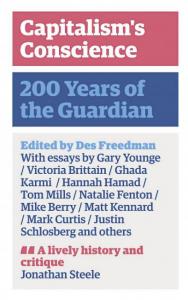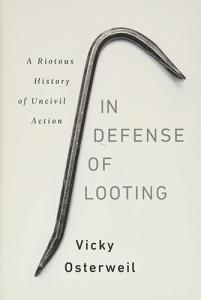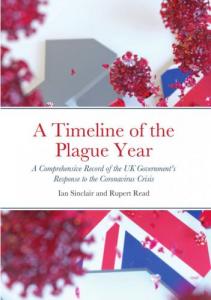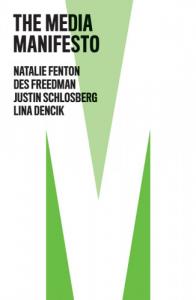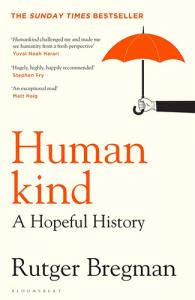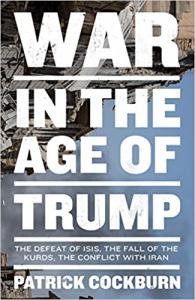Presumably hastily put together after the disorderly US-UK-NATO withdrawal from Afghanistan in August 2021, The Ledger is written by two advisors to the Western militaries and Afghan government: David Kilcullen and Greg Mills. Their roles gave the pair an enviable level of access to top level US-UK government and military sources, whom they cite regularly, but is also likely a key reason why their analysis is so restricted, generally limited to what Noam Chomsky calls the ‘fight it…
Sinclair, Ian
Sinclair, Ian
Ian Sinclair
Though he doesn’t mention it in this book, I imagine activist Chris Saltmarsh is a big fan of the Chico Mendes quote that often appears on Twitter: ‘Environmentalism Without Class Struggle is Just Gardening.’
For Saltmarsh, ‘the root cause of climate change is our system of organising the economy and our relationship to nature: capitalism.’ With the ruling class profiting most from the crisis, he notes the resistance of capital is ‘perhaps the biggest barrier to climate justice.’…
Nonviolent resistance campaigns have been twice as successful as violent campaigns in achieving their objectives. That was the conclusion of Erica Chenoweth and Maria Stephan’s Why Civil Resistance Works: The Strategic Logic of Nonviolent Conflict, making it a seminal book in the study and practice of nonviolent struggle (see PN 2547 – 2548…
With the Vietnam War still raging, in early 1971, a coalition of American anti-war groups converged on Washington, DC, around May Day (1 May) for a series of protests, including an attempt to shut down the city.
‘If the government won’t stop the war, we’ll stop the government’ was the unofficial motto of the movement.
Though it remains one of the lesser-known demonstrations against the US attack on Vietnam, by 6 May more than 12,000 people had been taken into custody, making…
Roads, Runways and Resistance is infused with a sense of urgency in terms of the climate crisis.
Underpinned by 50 original interviews with activists, policymakers and lobbyists, Steve Melia surveys key campaigns against government transport policy over the past 30 years. These range from the anti-roads protests of the ’90s to the fight against airport expansion and the Extinction Rebellion (XR) mass actions of 2019. His review includes the fuel protests of 2000, which nearly…
‘There is a general policy by the MoD [ministry of defence] to keep the horror of what’s going on in Afghanistan out of the public domain,’ a senior officer told the Telegraph in September 2008. ‘If the real truth were known it would have a huge impact on Army recruiting and the Government would come under severe pressure to withdraw the troops.’
Unsurprisingly then, while there has been a huge amount of media coverage of the US-UK-NATO withdrawal from Afghanistan, lots of…
‘The Guardian’s mission’, the paper’s editor Katharine Viner recently stated, ‘is one that allows – and even encourages – [me]… to challenge the powerful, whatever the consequences.’
This collection, edited by Des Freedman, professor of media and communications at Goldsmiths university, does a good job of demolishing this self-serving view.
Though the paper has a reputation for identifying with left-wing positions, Freedman argues that ‘the Guardian is not a…
Joel Bakan’s The Corporation: The Pathological Pursuit of Profit and Power, was published in 2004 alongside a film documentary of the same name. Those were timely and influential assaults on the central institution of contemporary capitalism.
Bakan has now written a sequel, a response to the ‘trend of corporations claiming to be different, to have changed into caring and conscientious actors – ready to lead the way in solving society’s problems.’ This shift is, it seems, a…
Having directed the award-winning 2011 documentary about Gene Sharp, How To Start A Revolution, Ruaridh Arrow has now published an engrossing biography of the man who CNN once called ‘the father of nonviolent struggle’.
Sharp, who died in 2018 aged 90, led an extraordinary life.
He was sent to prison for refusing to be drafted at the time of the Korean War, worked as assistant editor at Peace News in the late 1950s, observed firsthand the Tiananmen Square protest in…
Written in the wake of the 2014 protests in Ferguson, Missouri, Vicky Osterweil’s central argument is that looting and rioting are positive actions, which ‘in most instances… transform and build a nascent moment into a movement’.
Unserious and incurious, In Defense of Looting won’t change the minds of seasoned peace activists though, worryingly, it might influence those who are in the process of forming their views on protest and political change.
Osterweil maintains…
After creating and then updating a timeline of the pandemic every week since April 2020, in April 2021 Ian Sinclair and Rupert Read, working with editor Joanna Booth, published a free eBook A Timeline Of The Plague Year: A Comprehensive Record of the Government’s Response to the Coronavirus Crisis.
The impetus for the timeline came from a sense Rupert had, in February-March 2020, of the then emerging coronavirus pandemic in the UK as being, in the …
A product of the Media Reform Coalition – a group of academics, activists and journalists working for progressive media reform in the UK – The Media Manifesto is a tightly-argued, inspiring call to action.
One of the book’s central arguments is that the misinformation underpinning developments like the rise of Trump, and the media’s failure to adequately challenge power, shouldn’t – as many liberals would have you believe – be blamed solely on fringe ‘fake news’ elements and…
The UK government’s response to the coronavirus pandemic has been a ‘national scandal’, as I wrote in PN six months ago. (See PN 2642 – 2643) Reaching its peak in terms of infections and deaths in March and April, the virus killed an estimated 65,400 people in the UK by mid-June, according to the Financial Times. At the time, this huge death toll was the highest in Europe, and the second-highest in the world after the United States.
Following the…
The basic argument of this book is very simple. Contrary to the ‘persistent myth that by their very nature humans are selfish’, Dutch author Rutger Bregman argues that ‘most people, deep down, are pretty decent.’
The assumption of human selfishness underpins huge portions of mainstream political and economic thinking, including the influential veneer theory – ‘the notion that civilisation is nothing more than a thin veneer that will crack at the merest provocation’. Bregman believes…
Currently writing for the Independent and the London Review of Books, Patrick Cockburn is one of the most experienced foreign correspondents working in the Middle East today.
His latest book is largely made up of short-form reportage based on writings and diary entries at the time of the events being covered, alongside some contextualising retrospective explanation.
Covering the first term of the Trump administration, which Cockburn argues has been populated…


